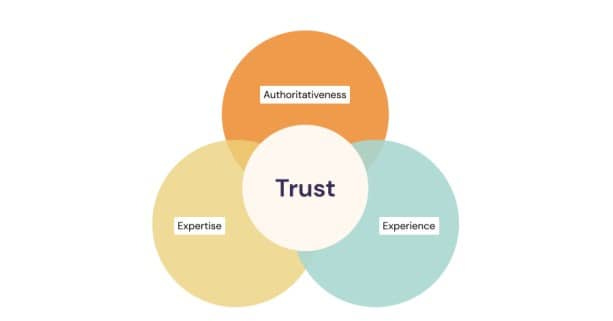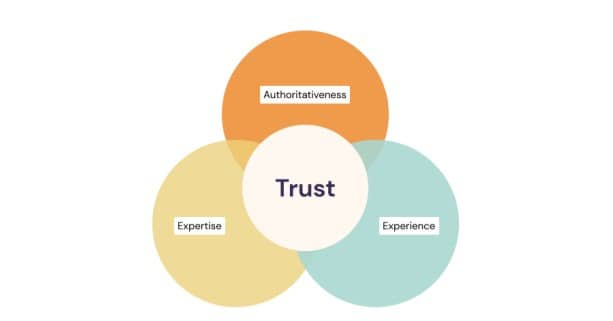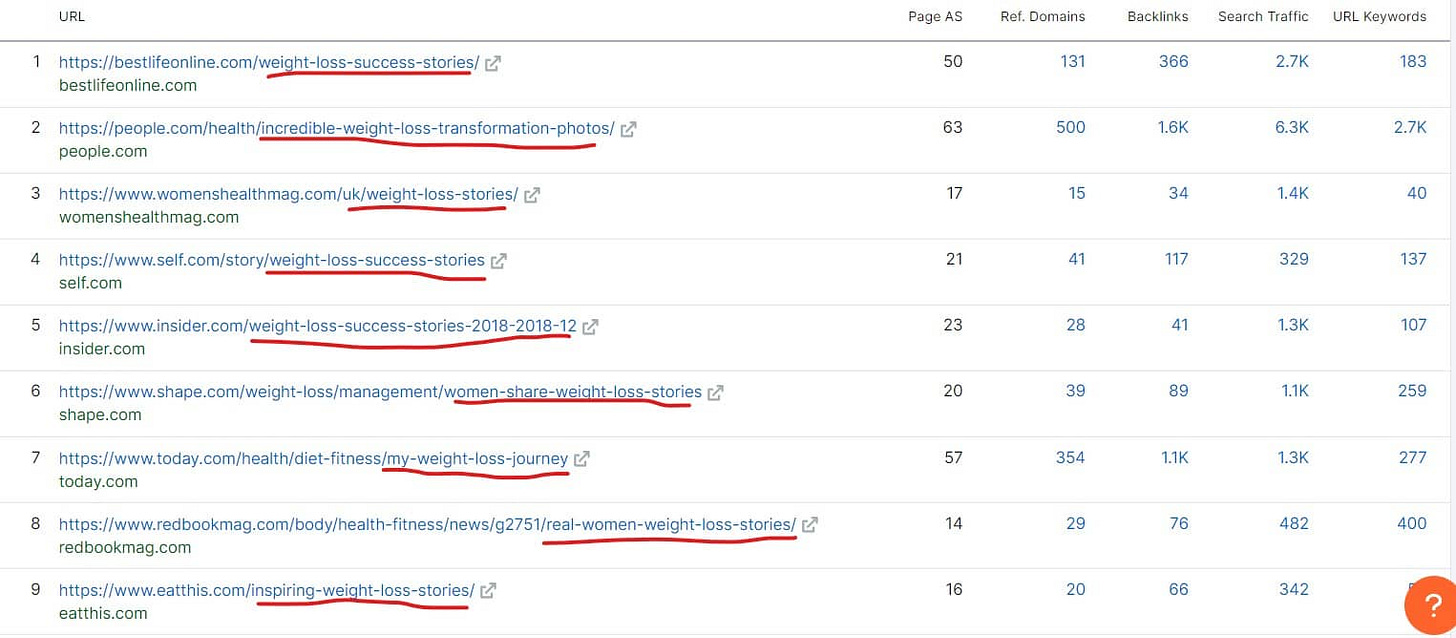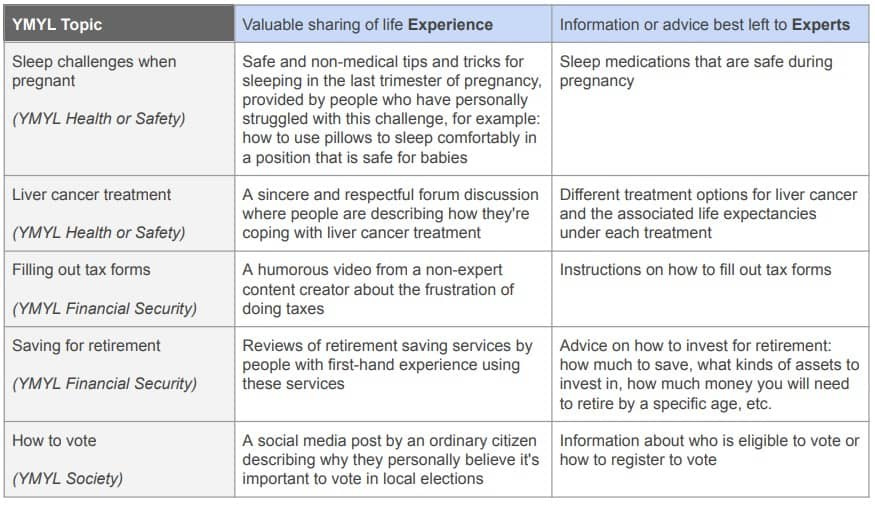Google E-E-A-T: Everything You Need to Know
Google just updated its search quality raters guidelines (SQRG) for the second time this year, and for the third time since October 2021, which shows how important this document is (was and will continue to be too!)....
If you're wondering what changed and what does that mean for your day to day work (I focus on actions and not theory), read on...
TL'DR - Key Takeaways
Learning the search quality raters guidelines (SQRG) can be useful to creators seeking to understand how to self-assess their own content to be successful in Google Search.
E-E-A-T stands for experience, expertise, authoritativeness, and trust.
E-E-A-T are not a specific ranking factor nor they directly influence rankings.
Trust is the most important member of the E-E-A-T family because untrustworthy pages have low E-E-A-T no matter how Experienced, Expert, or Authoritative they may seem. For example, a financial scam website is untrustworthy, even if the content creator is a highly experienced and expert scammer who is considered the go-to on running scams
There are many aspects of Trust, some which are not captured by Experience, Expertise and Authoritativeness, such as customer service information for online stores. So you need to look at the website and ask yourself, how to make this website more "trustworthy" from a user standpoint.
Sometimes experience is required to satisfy user intent and expertise will not be sufficient to cover a topic.
Automatically generated content with no editing or manual curation or original content is considered spammy content by Google and will be given the lowest rating for E-E-A-T.
Building more backlinks & positive reviews will not help resolve low quality E-E-A-T issues.
The SEO Riddler Newsletter
Join the newsletter to receive the latest updates in your inbox.
Table of Contents:
Search Quality Raters Guidelines (SQRG)
In 2013, Google published their human rating guidelines to provide transparency on how the search algorithm works and to help webmasters understand what they're looking for in web pages. [Source].
The document provides instructions to human quality raters (contractors) google hire to manually evaluate websites that appear in search results and therefore it provides us - as SEOs - with plenty of insights of what matters from Google standpoint.
What is EAT? - or Shall We Say "what was EAT"
E-A-T stands for expertise, authoritativeness and trust. While EAT are not a specific ranking factor on their own [source] and they don't directly influence rankings [source], Google uses those signals after identifying relevant content to further evaluate & prioritize the most "helpful" results.
The way the SQRG doc explains how E-A-T works is as follows:
The expertise of the creator of the main content.
The authoritativeness of the creator of the main content, the main content itself, and the website.
The trustworthiness of the creator of the main content, the main content itself, and the website.
**Main content mean non-adv or navigation/footer etc content.
What is E-E-A-T?
Google officially introduced a new element to the equation, adding another “E” to E-A-T (for “experience”). E-E-A-T now stands for:
Experience: does the creator of the content has personal first hand experience with the topic? (adding non-stock photos taken by the content creator themself for example for a product review blog post can show experience)
Expertise: does the creator of the content has the necessarily skill or knowledge of the topic? (a degree for example can show expertise, but is not the only way to show expertise)
Authoritativeness: to what extent is the creator of the content, or the website itself are known as the go to source for the topic.
Trust: what would make this creator a trustworthy source of this information? (for website or content creator may not be a trustworthy source if there is a clear conflict of interest).
The whole purpose of evaluating the expertise, experience and authoritativeness of a website is to understand how much is this website/content "trustworthy". In fact the SQRG states:
💡 Trust is the most important member of the E-E-A-T family because untrustworthy pages have low E-E-A-T no matter how Experienced, Expert, or Authoritative they may seem. For example, a financial scam is untrustworthy, even if the content creator is a highly experienced and expert scammer who is considered the go-to on running scams.
That said, different types of content requires different level of trust. For example a social media posts on non-YMYL (your money your life) topics may not need a high level of Trust, as the post does not risk causing harm.
Experience Vs. Expertise
When is the content creator/author first-hand experience is sufficient and when is expertise more important or even essential? This is something very important to take into account when hiring content writers for your website.
In the SQRG, Google's explains:
💡 If the purpose of a page on a clear YMYL topic is to give information or offer advice, a high level of expertise may be required for the page to be trustworthy. However, sometimes pages on YMYL topics are created to share personal experiences, often regarding difficult life challenges. People turn to each other in times of need to share their own experience, seek comfort or inspiration, and learn from others. Factual information from experts and authoritative sources may not satisfy this need.
So experience vs expertise, when to use which? basically "it depends"! Pages with first-hand experience can show high E-E-A-T as long as the content is trustworthy, safe, and consistent with well-established expert consensus.
If the author is writing a personal first-hand experience about a YMYL topic (health or finance) the recommendation is they should double check any facts/information they share along the way and make sure they're aligned with consensuses and referring to reliable sources. So if the author is writing about their COVID recovery story, they should refer to reliable sources on the topic when talking about particular areas like "treatment", "COVID regulations", "vaccination", etc...
On the other hand, topics that require personal first-hand experience, will not be satisfied by expert authors! It's sort of surprising, but if users are looking for a "success story" no amount of expert advise will be sufficient to rank for this query. For example, let's take the keyword "weight loss success stories":
If you look at the search results for this search term, it looks like this:
All results are based off actual personal women stories that went through weight loss first-hand. We can notice some keywords that signal "experience" include:
"transformation photos"
"Women share"
"My"
"Real women"
Google's SQRG also offers plenty of great examples to demonstrate when is experience vs. expertise matter:

Is Automated Content Considered Spammy?
Yes, automatically generated content with no editing or manual curation or original content is considered spammy content by Google and will be given the lowest rating for E-E-A-T.
What is the Lowest Quality Content?
In the Lowest Quality Pages section, Google describes different types of low quality pages that are considered by Google as untrustworthy pages. These are basically pages that are:
Harmful to Self or Other Individuals
Harmful to Specified Groups
Harmfully Misleading Information
Generally Untrustworthy Webpages
Spammy Webpages
In the last section "spammy webpages" google flags Auto-generated content as spammy and should be given the lowest quality rating. Here's what Google says:
💡 Pages and websites made up of auto-generated content with no editing or manual curation, and no original content or value added for users, should be rated Lowest .
What is Considered as Low Quality Content?
Low quality content is content that is not good enough but not bad as spammy webpages and other examples mentioned in the section above. For every topic type (medical topics, travel topics, etc) there's a specific level of E-E-A-T required and low quality content simply does not meet the level of E-E-A-T required.
Google defines low quality content as follows [source: section 5.1]:
The content creator lacks adequate experience, e.g. a restaurant review written by someone who has never eaten at the restaurant
The content creator lacks adequate expertise, e.g. an article about how to skydive written by someone with no expertise in the subject
The website or content creator is not an authoritative or trustworthy source for the topic of the page, e.g. tax form downloads provided on a cooking website.
The page or website is not trustworthy for its purpose, e.g. a shopping page with minimal customer service information
Can Backlinks Help with Low Quality Content?
No, a positive online reputation will not help compensate for low level of E-E-A-T required for a specific topic.
Google states clearly:
💡 "No other considerations such as positive reputation or the type of website can overcome a lack of E-E-A-T for the topic or purpose of the page."
What Does that Mean for SEOs?
As usual, I like to make sure we come back to earth and see what all of this theoretical information mean in terms of execution. For SEOs, here's what this means for you (and what's changing):
Overall website analysis: Make sure to look the website as a whole, and ask yourself, what would make this website more trustworthy from a user standpoint. Imagine that you are going to buy something on this website, what would make you feel this is a trustworthy business.
Part of your content brief should include consensus information and links to reliable sources to include. Your content brief should also clarify is this an expert or experience piece of content and it should be written accordingly.
Checkout Aleyda Solis' checklist to evaluate the E-E-A-T and content quality as per Google's guidelines here.




